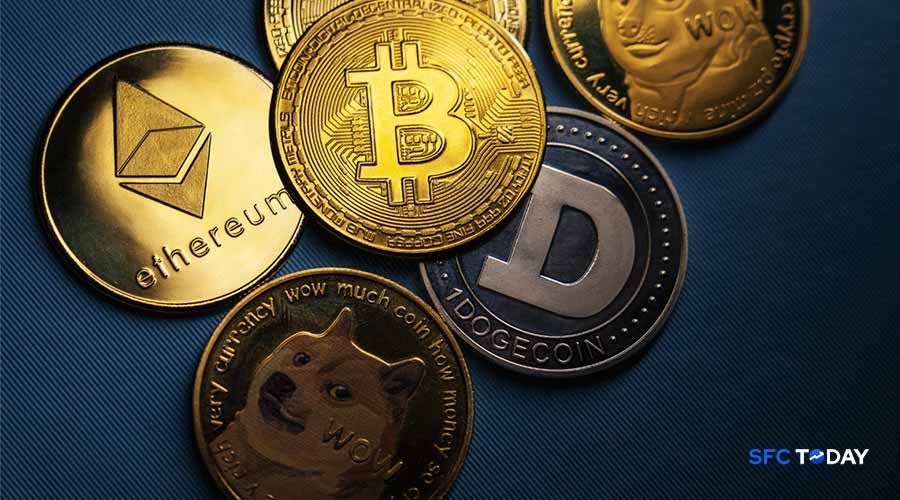Cryptocurrency Market Shifts: Transforming Global Finance in a Decentralized World
Introduction
There is a revolution coursing in the veins of global finance. The change is not being driven by governments or central banks but by the emergence of digital innovation. Cryptocurrency market dynamics, blockchain applications, and expansion of digital assets are reshaping the structure and functioning of financial systems. They are more than the emergence of new investment products. They are changing the very essence of how value is being transferred, stored, and held.
Understanding Cryptocurrency Market Developments
The cryptocurrency market has developed from a speculative niche to an acknowledged part of the financial market. Bitcoin, which was the pioneer, introduced the world to decentralized currency. Within the last couple of years, there have been thousands of cryptos constructed that have a varied use from payments to decentralized voting.
Institutional participation in the cryptocurrency space has increased. Hedge funds, asset managers, and listed firms have started investing capital in digital currencies. Crypto exchange-traded funds (ETFs) and custody products are pushing digital assets into institutional hands.
Greater trading volume, better liquidity, and more secure infrastructure have brought to bear this previously niche market. The mainstreaming of fringe asset to institutional interest represents a turning point in financial evolution.
Blockchain Adoption in Financial Systems
The key driver of the cryptocurrency revolution is blockchain technology. Blockchain, being a distributed ledger, enables secure, transparent, and immutable transactions. The banking sector now significantly invests in the adoption of blockchain for process automation, enhanced compliance, and antifraud.
The central banks are also investigating central bank digital currencies on a blockchain platform. Already, China, Sweden, and Nigeria have live implementations or running pilot programs. The digital currency has the potential to increase payment efficiency and lower the use of cash.
Private sector take-up is also gaining momentum. Banks are piloting blockchain for cross-border transactions and trade finance. Insurers are applying smart contracts to automated settlement of claims. The advantages are quicker settlement, lower costs, and greater transparency.
The Rise and Impact of Digital Assets
Digital assets now go far beyond cryptocurrencies. They encompass tokenized real-world assets, stablecoins, and non-fungible tokens (NFTs). Each plays different roles in the digital economy.
Fiat-pegged stablecoins bring stability and convenience to being accepted for everyday transactions and remittances. Tokenized property, shares, and commodities enable fractional ownership of real estate, equity, and commodities. NFTs have enabled a digital marketplace once more for art, entertainment, and identity.
This advancement brings liquidity, accessibility, and transparency. The investor can now access properties he had no prior access to. These are being brought into the global financial system with participation and access expanding exponentially.
Decentralized Finance: Breaking Down Traditional Silos
The most revolutionary cryptocurrency trend is Decentralized Finance, or DeFi. From open blockchains such as Ethereum, DeFi eliminates middlemen in the form of smart contracts. These protocols facilitate lending, borrowing, trading, and earning interest without brokers or banks.
Value trapped in DeFi has increased to billions of dollars. Self-governing platforms such as Aave, Uniswap, and MakerDAO provide high-yielding returns. DeFi opens up finance by eliminating gatekeepers and reducing barriers to entry.
This revolution is characterized by innovation and adaptability. Products are designed, brought to market, and modified quickly. But it poses risks such as smart contract vulnerabilities, regulatory risks, and security threats. Nevertheless, open finance is becoming increasingly appealing.
Implications for Global Finance
Cryptocurrency and blockchain are not on the edge anymore. They are at the center of discussions around financial innovation. Global finance is redirecting itself towards a more digitalized and decentralized state.
Financial establishments are adjusting to this change by providing crypto investing products. Paying companies already accept digital currency. Governments also initiate digital money pilots in a bid to keep up and maintain control. Trust is transferring away from institutions toward technology.
Global remittances, capital markets, and monetary policy are all being affected. Cryptocurrency provides cheaper, faster cross-border payments, particularly for the unbanked. Tokenized securities provide new capital formation and asset distribution models.
Challenges and Regulatory Views
Despite growth, there remain gigantic challenges. The biggest challenge is regulatory uncertainty. Nations have reacted differently to cryptocurrency. There are some that promote innovation, while others try to heavily regulate it.
Compliance models for taxation and anti-money laundering are changing. Governments aim for balance between protection and consumer financial stability, and innovation. Harmonization at the global regulatory level still has not been achieved but more desperately so. Security is also an issue. Scamming, phishing, and hacking are threats in the space of digital assets. Education, compliance tools, and secure processes must mitigate these risks.
The Road Ahead
The cryptocurrency market will continue to grow. Blockchain technology adoption will gain traction in different industries. Digital assets will be included in mainstream financial products. DeFi will turn into a full-fledged, full-scale substitute for traditional finance.
Technologies like zero-knowledge proofs, interoperability layers, and decentralized identity will overcome existing limitations. These technologies will make it more scalable, private, and usable.
Convergence is the future of finance. Decentralised and traditional finance will blend. Institutions will take up blockchain with control maintained. Individuals will be able to keep more control over their data and their money.
Conclusion
Cryptocurrency market shifts are not simply novel investment prospects. They are symptoms of a world finance revolution. Blockchain adoption, digital money, and decentralised finance are reshaping the globe’s perception of cash and trust.
With the global economy advancing towards digital inclusion and decentralized exchange of value, the financial system is being rewritten. The transition promises possibilities but also requires clarity, adaptation, and vision. The age of new finance is here—and it is founded upon transparency, accessibility, and innovation.








